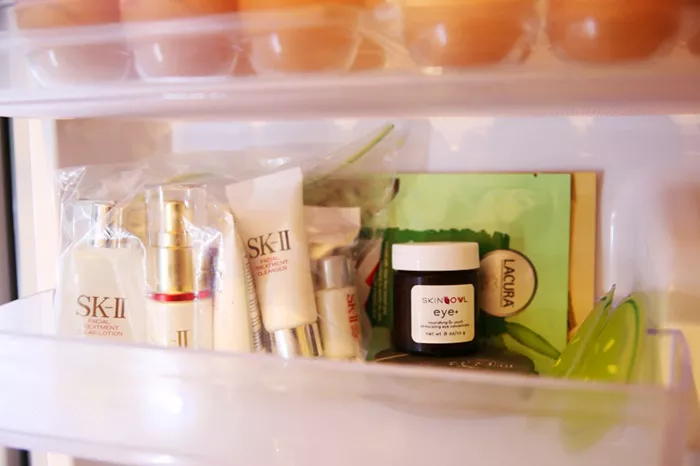In the realm of skincare, the question of whether to refrigerate products has gained significant attention. As consumers become increasingly aware of the importance of skincare, they often seek ways to enhance the efficacy and longevity of their products. Refrigeration is touted as a method that not only preserves the integrity of active ingredients but also provides a refreshing experience during application. This article explores the reasons behind refrigerating skincare products, examining the benefits, best practices, and considerations for various formulations.
The Science Behind Refrigeration
Understanding Temperature Effects on Skincare
The temperature at which skincare products are stored can significantly impact their stability and effectiveness. Heat and humidity are known to accelerate the degradation of active ingredients, leading to reduced efficacy and shorter shelf life. Conversely, cooler temperatures can slow down these processes, helping to maintain product integrity.
Active Ingredients: Many skincare products contain active ingredients such as antioxidants, peptides, and vitamins that are sensitive to heat. Refrigeration can help preserve these compounds, ensuring they remain effective for longer periods.
Microbial Growth: Storing products in a cooler environment can inhibit bacterial growth, reducing the risk of contamination and extending shelf life. This is particularly important for products that do not contain preservatives or have a shorter shelf life due to their formulation.
Physiological Benefits of Cold Applications
Applying cold skincare products can have immediate physiological benefits for the skin:
Vasoconstriction: Cold temperatures cause blood vessels to constrict, which can reduce redness and inflammation. This is particularly beneficial for individuals with sensitive or irritated skin.
De-puffing Effect: The cooling sensation can help alleviate puffiness around the eyes and face, making it an excellent choice for morning routines or after late nights.
Refreshing Sensation: On hot days or after intense workouts, applying chilled products can provide a refreshing boost, enhancing the overall skincare experience.
Benefits of Refrigerating Skincare Products
1. Extended Shelf Life
Refrigerating skincare products can prolong their shelf life by slowing down the degradation of active ingredients. For instance:
Antioxidants: Ingredients like vitamin C are particularly sensitive to heat and light. Keeping them in a cool environment helps maintain their potency.
Preservatives: Certain preservatives may also remain effective longer when stored at lower temperatures, ensuring that products remain safe for use over time.
2. Enhanced Efficacy
Many users report improved results when using refrigerated skincare products:
Eye Creams: Chilled eye creams can significantly reduce puffiness and dark circles due to their cooling effect on blood vessels.
Serums and Moisturizers: The application of cold serums and moisturizers can enhance absorption and effectiveness, providing a more invigorating experience.
3. Improved Texture
Some formulations may benefit from refrigeration in terms of texture:
Gel-Based Products: Gel formulations often feel more refreshing when applied cold, enhancing user satisfaction.
Creams: Chilling creams may help maintain a stable texture, preventing separation or changes in consistency that can occur at higher temperatures.
Which Products Should Be Refrigerated?
While many skincare items can benefit from refrigeration, not all should be stored in this manner. Here’s a breakdown:
Recommended Products
Eye Creams: These are ideal for refrigeration due to their targeted benefits for puffiness and dark circles.
Serums: Particularly those containing antioxidants or peptides should be kept cool to maintain their efficacy.
Moisturizers: Gel-based moisturizers can provide an extra refreshing sensation when chilled.
Products Not to Refrigerate
Certain formulations may become unstable or change in texture when exposed to cold temperatures:
Chemical Sunscreens: These may lose effectiveness if stored too cold.
Oil-Based Products: Oils may solidify in colder temperatures, altering their texture and application properties.
Certain Exfoliants: Products containing acids may become less effective if chilled excessively.
Best Practices for Refrigerating Skincare
Choosing the Right Refrigerator
Investing in a dedicated skincare fridge can be beneficial:
Temperature Control: Ensure that the fridge maintains a consistent temperature between 50°F to 60°F (10°C to 15°C) for optimal preservation.
Organization: A designated fridge allows easy access to your skincare essentials without cluttering your main refrigerator.
Storage Tips
To maximize the benefits of refrigerated skincare:
Keep It Clean: Regularly clean your fridge to prevent contamination.
Seal Containers Properly: Ensure that all products are tightly sealed to avoid exposure to moisture.
Avoid Frequent Opening: Minimize the frequency of opening the fridge to maintain consistent temperatures.
Conclusion
Refrigerating skincare products offers numerous benefits, from extending shelf life to enhancing application experiences. While not all products require refrigeration, those with sensitive active ingredients or those designed for soothing effects can greatly benefit from being stored in cooler environments. By understanding which products to refrigerate and following best practices for storage, consumers can optimize their skincare routines effectively.
Incorporating refrigerated skincare into daily routines not only enhances product performance but also elevates the overall experience of self-care. As consumers continue to explore innovative ways to improve their skincare regimens, refrigeration stands out as a simple yet effective strategy worth considering.
Related topic:
Do Collagen Skincare Products Work?
5 Best Skincare Products for Anti-Aging

